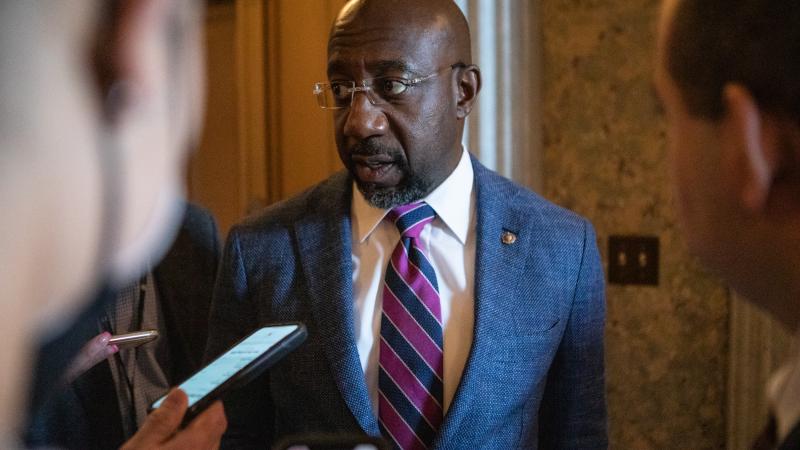House-passed tax bill expanding Child Tax Credit faces uncertain fate in Democrat-led Senate
“Passing a tax bill that makes the president look good — mailing out checks before the election — means he could be re-elected, and then we won’t extend the 2017 tax cuts,” says Sen. Chuck Grassley, R-Iowa.
The House-passed bipartisan tax bill that expands the Child Tax Credit by up to $1,600 per child faces an uncertain fate in the Democratic-led Senate.
“I’m working with Sen. Wyden to figure out the best way forward,” Schumer said shortly before the legislation passed the House on Wednesday.
The bill reflects a compromise between Senate Finance Committee Chairman Ron Wyden, D-Ore., and House Ways and Means Committee Chairman Jason Smith, R-Mo.
Sen. Chuck Grassley, R-Iowa, said the Democrats shouldn't count on Republican votes to pass the bill in the Senate, given that 2024 is an election year. He also referenced the upcoming battle in Congress over whether to extend the individual income tax rates and corporate tax rates in the 2017 Trump-era tax reform law.
“Passing a tax bill that makes the president look good — mailing out checks before the election — means he could be re-elected, and then we won’t extend the 2017 tax cuts,” Grassley said.
There were 47 Republicans who voted against the bill in the House. It ultimately passed after 88 Democrats and 169 Republicans voted in favor of the measure.
The official cost estimate of the bill from the Joint Committee on Taxation is nearly $80 billion through 2025 and it includes an equal amount of offsets to cover its cost in that timeframe. However, the Tax Foundation projected that the bill could cost $1.5 trillion over a 10-year period if lawmakers continue to renew the tax package in the future without any offsets to cover its estimated cost. The Committee for a Responsible Federal Budget estimated that the package would cost more than $650 billion over 10 years.
House conservatives opposed the legislation, in part, because it allowed illegal immigrants who file tax returns to collect the CTC. Illegal immigrants can use IRS-provided tax identification numbers to file returns. The bill increases the CTC from $2,000 per child to $3,600. The CTC can be collected by tax filers who do not owe any money in taxes.
No change was made to the bill to bar illegal immigrants for eligibility to claim the CTC prior to its passage.
House Speaker Mike Johnson reportedly committed to holding a separate vote on a bill to double the State and Local Tax Deduction (SALT) to $20,000. It is currently $10,000 for both individual and joint filers. The commitment was made after moderate Republicans vowed to vote against the tax package because it didn't address the SALT deduction cap. It is unclear at this time when the SALT legislation will see a floor vote in the House.
The CRFB is cautioning lawmakers not to raise the SALT cap.
After the vote, Rep. Bob Good, R-Va., chairman of the House Freedom Caucus, argued that the tax bill "incentivizes the invasion" at the U.S.-Mexico border by allowing illegal immigrants to collect the expanded Child Tax Credit on behalf of their children.
Rep. Josh Brecheen, R-Okla., described the CTC expansion in the bill as a "low-income individual welfare benefit expansions (eligible to illegal aliens) that were added to obtain President Biden’s and Senate Democrats’ support" for passing the tax package.
Brecheen noted that there's no requirement in the bill for lawmakers to find savings to cover the price tag of the package after 2025.
"This bill also weakens work requirements and according to the Joint Committee on Taxation will generate $155 billion in new deficits over the next 20 months, exacerbating our inflation crisis," Brecheen wrote on X. "Typical of Washington, the promised ‘pay-fors’ calculated over ten years will likely disappear."
Rep. Scott Perry, R-Pa., former chairman of the House Freedom Caucus, called the bill a "huge expansion of welfare to illegals while hollowing out the working class in favor of tax breaks for corporations that are selling out America."















